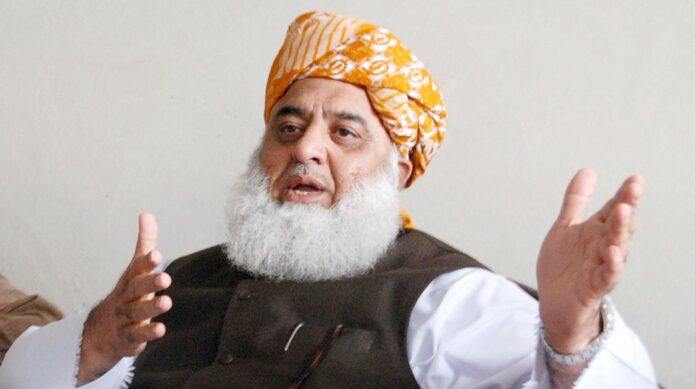Maulana Fazlur Rehman Warns Against Threats, Demands Action on Madaris Registration Bill
Jamiat Ulema-e-Islam-Fazl (JUI-F) chief Maulana Fazlur Rehman has issued a strong warning to the government and establishment, stating, “Threats won’t scare us.” Addressing a gathering on Sunday, Maulana Fazl said, “People in uniform and agencies should avoid sending us threats. If bad actions are taken, we will respond strongly.”
The JUI-F leader threatened a long march to Islamabad if demands regarding the Madaris Registration Bill are not met. The bill, aimed at regulating religious seminaries under the Education Ministry, was returned unsigned by President Asif Ali Zardari, citing objections, including that education is a provincial matter.
Criticizing the government’s approach, Fazl stated, “Attempts to subordinate madrasas under the Education Ministry through a directorate are unacceptable. These so-called reforms are a declaration of war against us.” He warned of mobilizing his party supporters if the bill is not passed by the December 8 deadline set by JUI-F.
In response, Minister for Religious Affairs Chaudhry Salik Hussain stated that the bill was approved by both houses of Parliament and emphasized that madrasas, as educational institutions, fall under the jurisdiction of the Education Ministry. He noted that 18,000 madrasas have already been registered with the Directorate General of Religious Education.
Meanwhile, Allama Tahir Ashrafi, head of the Pakistan Ulema Council, opposed Fazlur Rehman’s stance. Ashrafi emphasized that madrasas are educational institutions and should remain under the Ministry of Education, referencing a consensus reached in 2019 that established this framework.
Reportedly, Fazlur Rehman had been assured cooperation by the coalition government for the passage of the Madaris Registration Bill in exchange for his support on the 26th constitutional amendment. Fazl reaffirmed his commitment to protecting madrasas’ rights, stating, “Madrasas will be registered but not subordinated. We will ensure agreements made in 2010 are upheld.”
This ongoing debate highlights divisions over the regulation of religious seminaries in Pakistan, with key stakeholders pushing for their rights and autonomy while addressing the need for oversight and registration.




